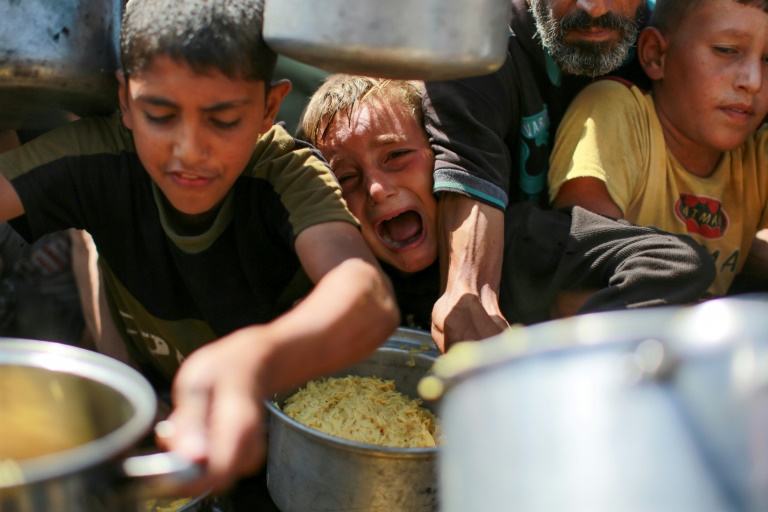UN Secretary-General Antonio Guterres condemned the ongoing humanitarian crisis in Gaza on Thursday, describing it as an “endless catalogue of horrors.” His remarks came as the territory’s civil defense reported that at least 31 individuals had been killed by Israeli forces since dawn. As Israel’s military prepares for a significant offensive in Gaza City, both domestic and international pressures are mounting for an end to the nearly two-year conflict.
The situation in Gaza has reached alarming proportions, with the United Nations declaring a famine in the region. More than two million residents have been displaced at least once during the war. Guterres emphasized the extent of destruction, stating, “Gaza is piled with rubble, piled with bodies and piled with examples of what may be serious violations of international law.” He called for accountability in response to the escalating violence.
On the ground, massive plumes of smoke were visible over Gaza City following Israeli bombardments targeting the outskirts of the territory’s largest city. Eyewitness Aya Daher, who fled from Gaza City’s Zeitoun district, recounted her harrowing experience to AFP, saying, “There were explosions all night. I was injured, my husband was injured by shrapnel, and my son was also wounded in the head. Thank God we survived, but there were martyrs.”
Reports from Gaza’s civil defense agency indicate that Israeli strikes and gunfire resulted in at least 31 fatalities across the territory on Thursday, including six individuals who were shot while awaiting aid in the southern region. In response to these claims, the Israeli military requested specific times and coordinates for verification, asserting that its operations target “terrorist organizations throughout the Gaza Strip.”
Israeli military officials announced preparations to “expand operations against Hamas in Gaza City.” The Coordinator of Government Activities in the Territories (COGAT), which oversees civil affairs in Palestinian regions, indicated plans to facilitate the movement of residents southward for their protection.
According to UN estimates, nearly one million people currently reside in Gaza governorate, which encompasses Gaza City and surrounding areas in the north. On Wednesday, the military’s Arabic-language spokesman, Avichay Adraee, stated on social media platform X that the evacuation of Gaza City was “inevitable.”
The head of the UN’s World Food Programme, Cindy McCain, expressed grave concerns regarding the worsening conditions in Gaza, stating that the region is “at breaking point.” After a recent visit, she highlighted the soaring levels of desperation among the population and called for the urgent revival of a network of 200 food distribution points. The UN had previously declared a famine in Gaza governorate, attributing the crisis to “systematic obstruction” of humanitarian aid by Israel.
Israel has imposed stringent restrictions on aid entering Gaza, intermittently cutting it off entirely during its offensive against Hamas, which began following the militant group’s attack on southern Israel in October 2023. After Israel eased restrictions in late May, the Gaza Humanitarian Foundation (GHF) was established with private backing from the US and Israel to distribute food aid. This effectively sidelined UN agencies, leading to chaotic distribution efforts. Reports surfaced of Palestinians facing violence while attempting to collect aid at GHF distribution sites.
UN human rights experts raised alarms about reports of “enforced disappearances” at GHF locations, although the organization stated that there was “no evidence” of such incidents at its aid points. The conflict has resulted in significant casualties, with an AFP tally based on Israeli figures reporting that the initial Hamas attack caused the deaths of 1,219 individuals, primarily civilians. In retaliation, Israeli military actions have resulted in the deaths of at least 62,966 Palestinians, with most being civilians, according to the health ministry in Hamas-controlled Gaza, data that the UN considers reliable.
As the situation continues to deteriorate, the international community watches closely, and urgent calls for humanitarian access and accountability grow louder.





































































